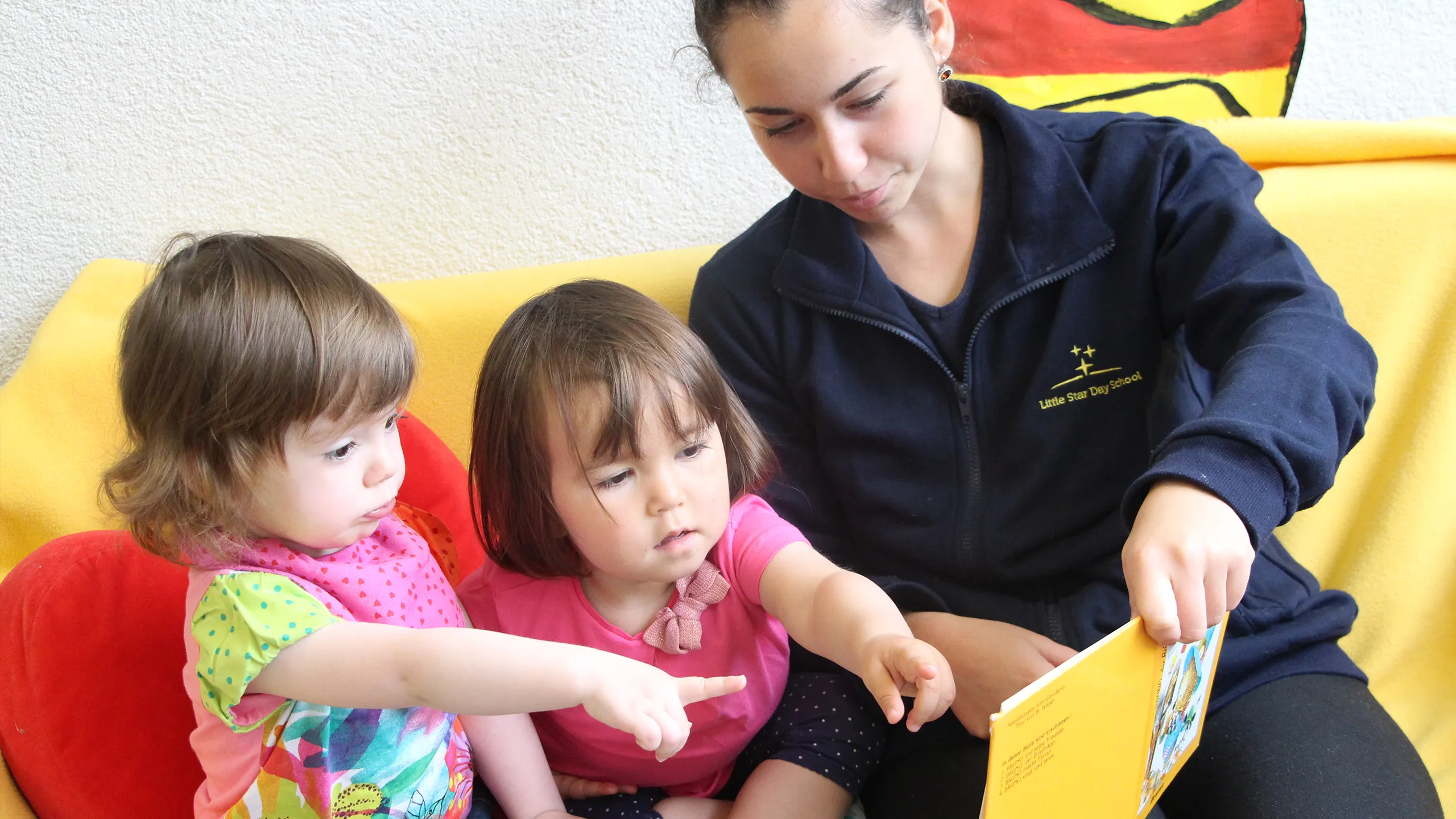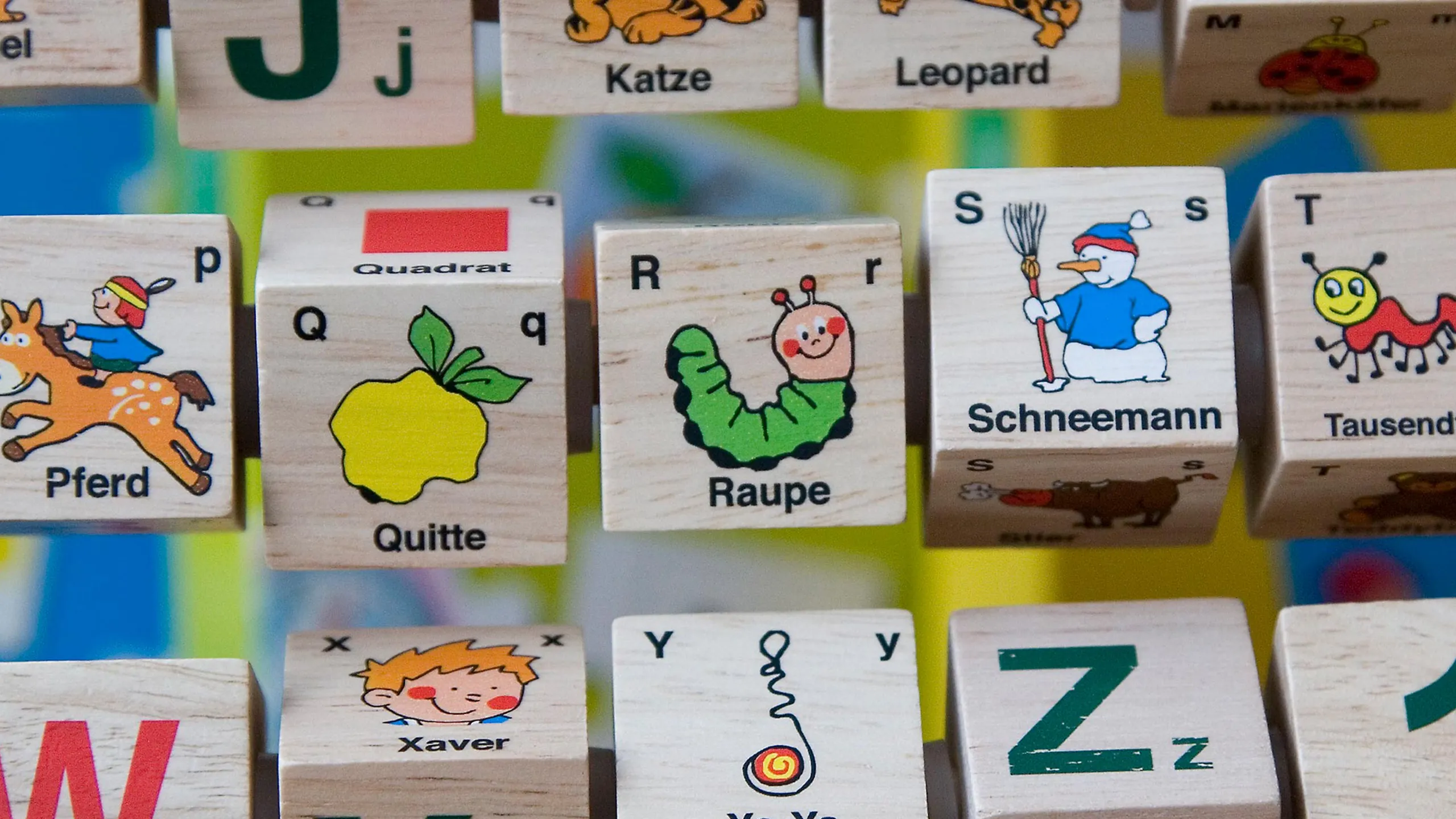Bilingualism
Bilingualism
Bilingualism Through Immersion
“One language sets you in a corridor for life. Two languages open every door along the way.”
Frank Smith, Psycholinguist
At Little Star Day School, each face is assigned a language. Scientifically, this is called the immersion principle: One part of the caregivers only speaks High German and another part only English. In this way, the children naturally encounter both languages in their daily care.


The children immerse themselves in a language bath and repeatedly encounter the respective language. In everyday life, the activities and learning centers are offered and carried out by both the English- and German-speaking caregivers. In this way, not only is the topic taught in both languages, but the technical terms are also learned in both languages. For children who have a different first language, we recommend that parents also talk about the topic from daycare at home, so that the child also learns the terms in their primary language.
Full Language Immersion
An important part of the Little Star Day School experience is also that the children not only learn the languages from the caregivers, but also from the other children. The Little Star family is very international. About half of the children have German or English as their mother tongue or family language. In this way, the children learn from each other while playing.
Some parents ask our teachers: Why is bilingual early education an advantage? We believe, and research shows, that bilingualism is not just switching between languages. Speaking two or even more languages has a tremendous impact on a child’s brain. Most significantly, the improvement of cognitive abilities, strengthening of self-esteem, and coordination of learning processes. Studies show that the earlier a child learns a language, the better they learn it. Why? Because before the age of four, children learn a different language with the same part of the brain that they use to learn their native language.
Little Star Day School’s language concept includes learning and teaching English and High German as an additional language. The special KonLab language program helps children acquire German in a fun way.
“One language sets you in a corridor for life. Two languages open every door along the way.”
Frank Smith, Psycholinguist

At Little Star Day School, each face is assigned a language. In science, this is called the immersion principle: One part of the caregivers always speaks only High German and another part always speaks only English. In this way, the children naturally encounter both languages in their daily care.

The children immerse themselves in a language bath and repeatedly encounter the respective language. In everyday life, the activities and learning centers are offered and carried out by both the English and German speaking caregivers. In this way, not only is the content of a topic taught in both languages, but the technical terms are also learned in both languages. For children who have a different first language, we recommend that the parents also talk about the topic from the daycare at home, so that the child also learns the terms in his or her primary language.
Full Language Immersion
An important part of the Little Star Day School experience is also that the children learn the languages not only from the caregivers, but also from the other children. The Little Star family is very international. About half of the children have German or English as their mother tongue or family language. In this way, the children learn from each other – while playing.
Some parents ask our teachers: Why is bilingual early education an advantage? We believe, and research shows, that bilingualism is not just switching between languages. Speaking two or even more languages has a tremendous impact on a child’s brain. To mention here would be the improvement of cognitive abilities, strengthening of self-esteem and coordination of learning processes. Studies show that the earlier a child learns a language, the better he or she learns it. Why? Because children who learn a language before the age of four learn it with the same part of the brain that they use to learn their native language.
Little Star Day School’s language concept includes learning and teaching English and High German as an additional language. The special KonLab language program helps children acquire German in a fun way.




